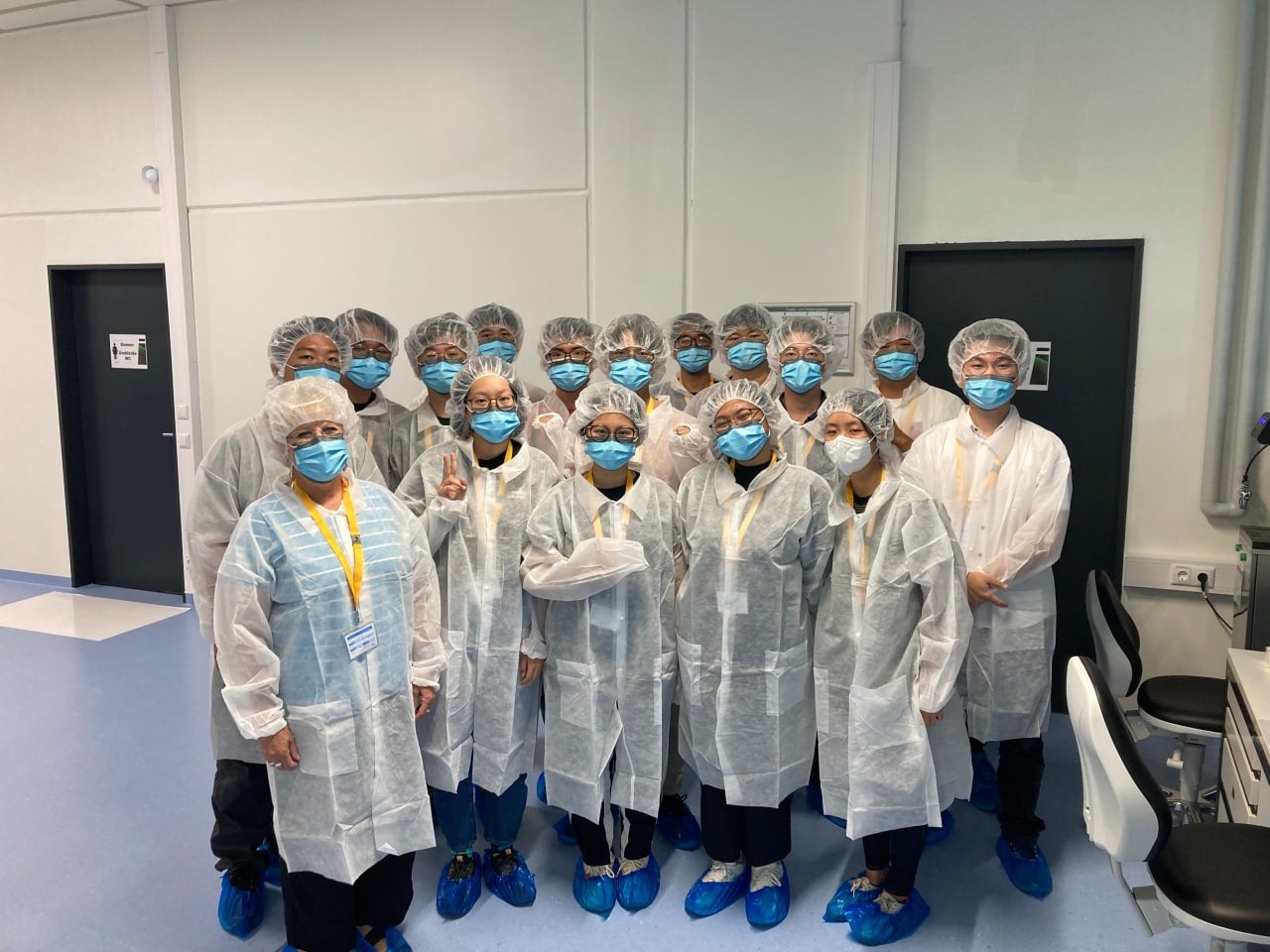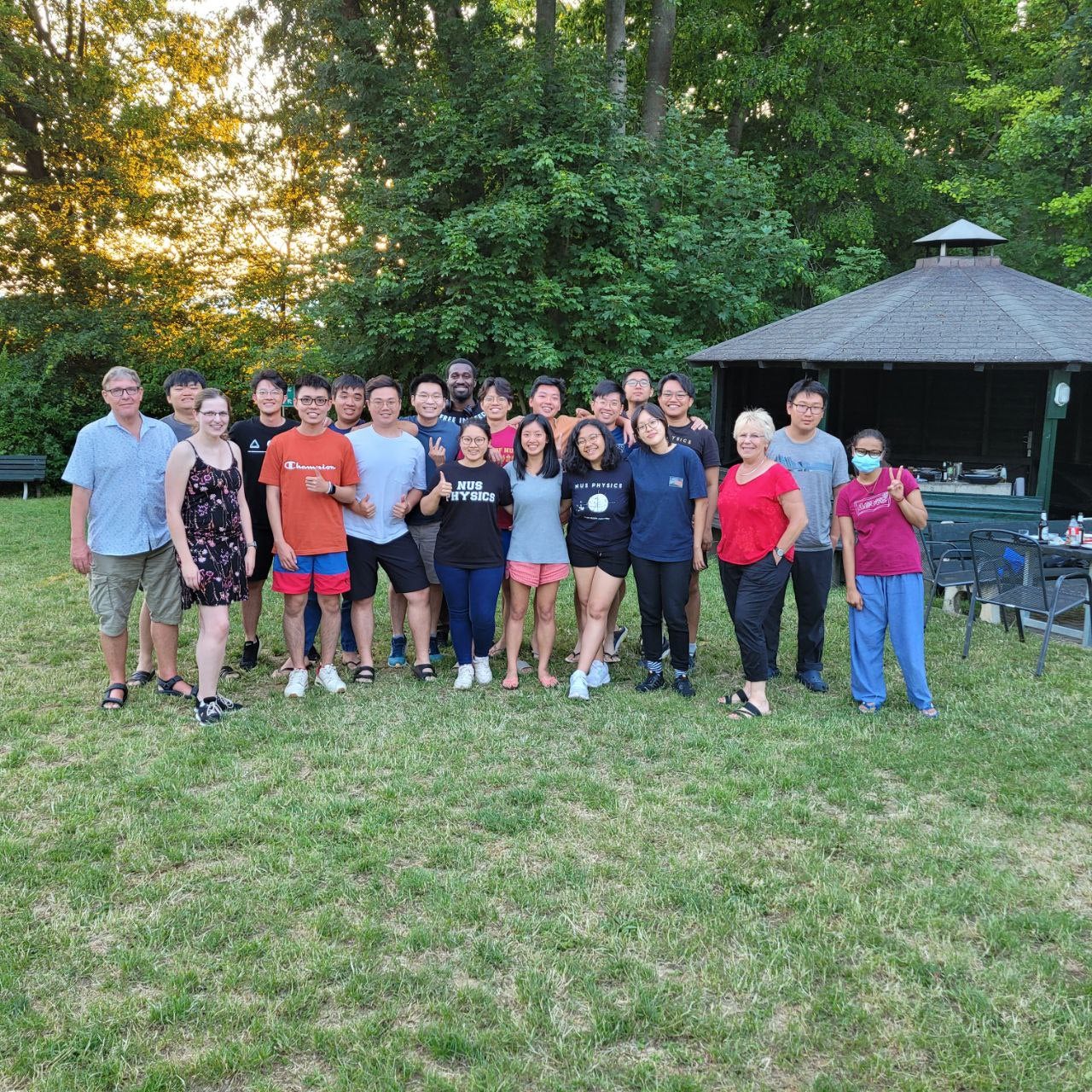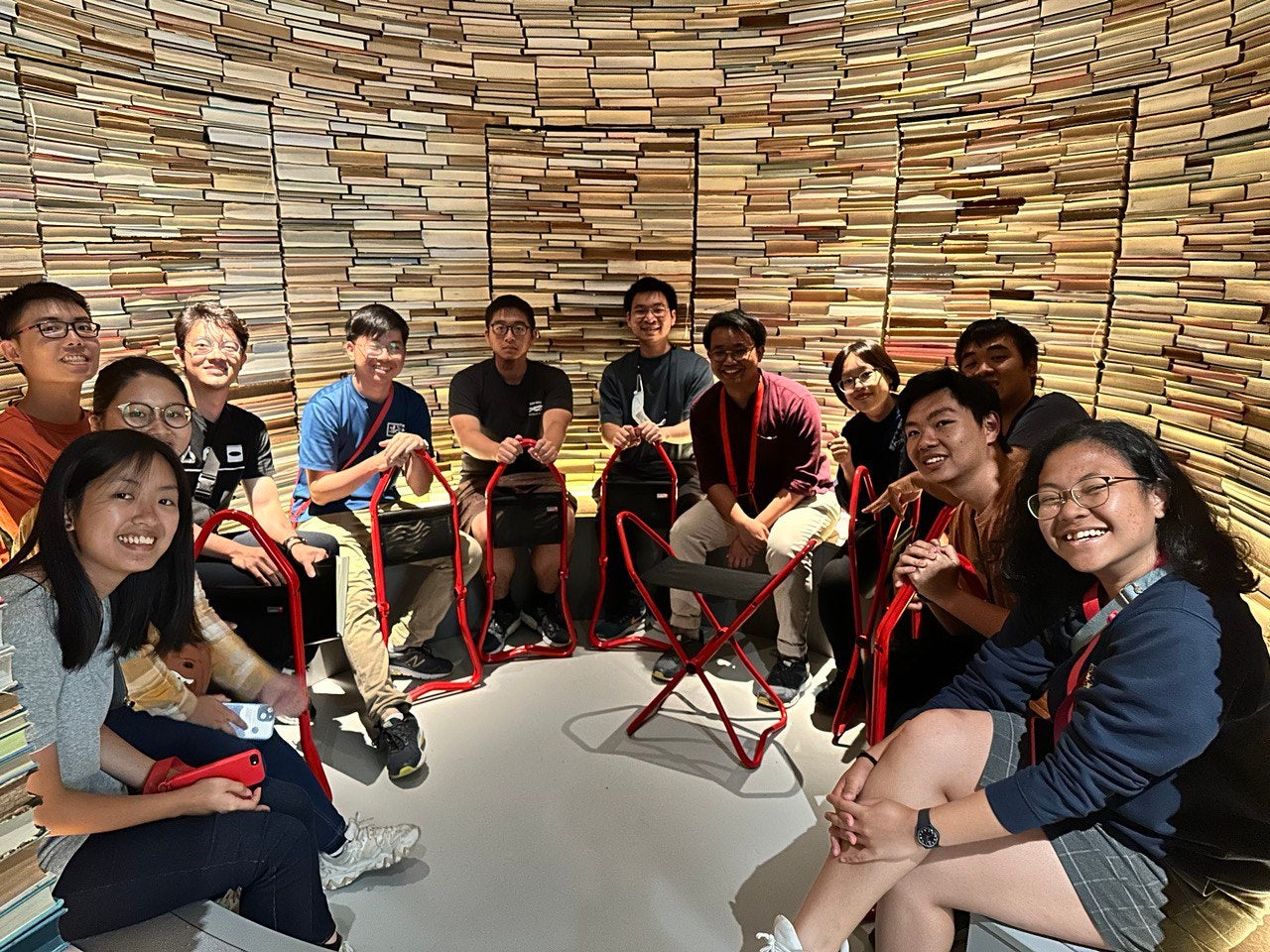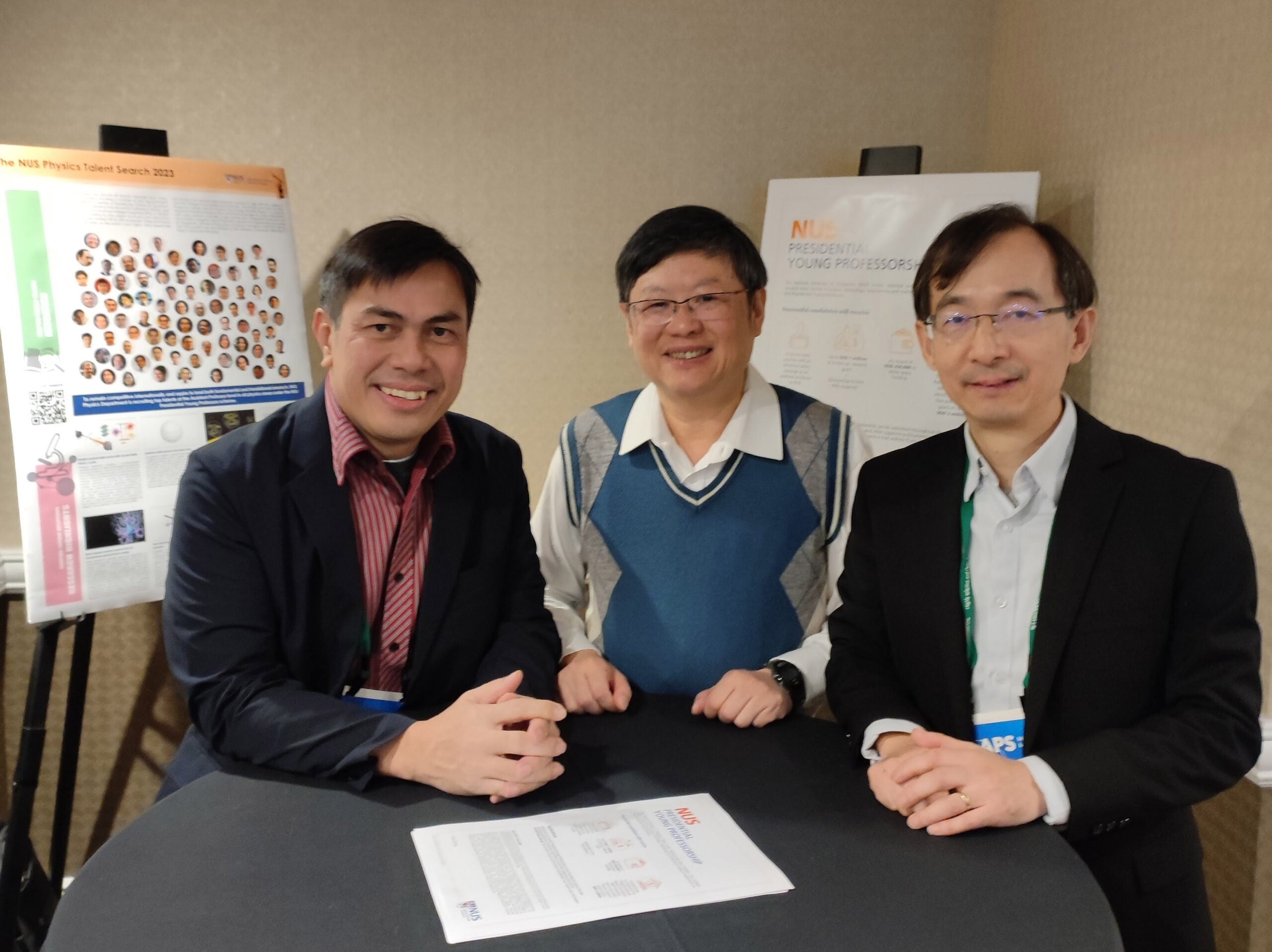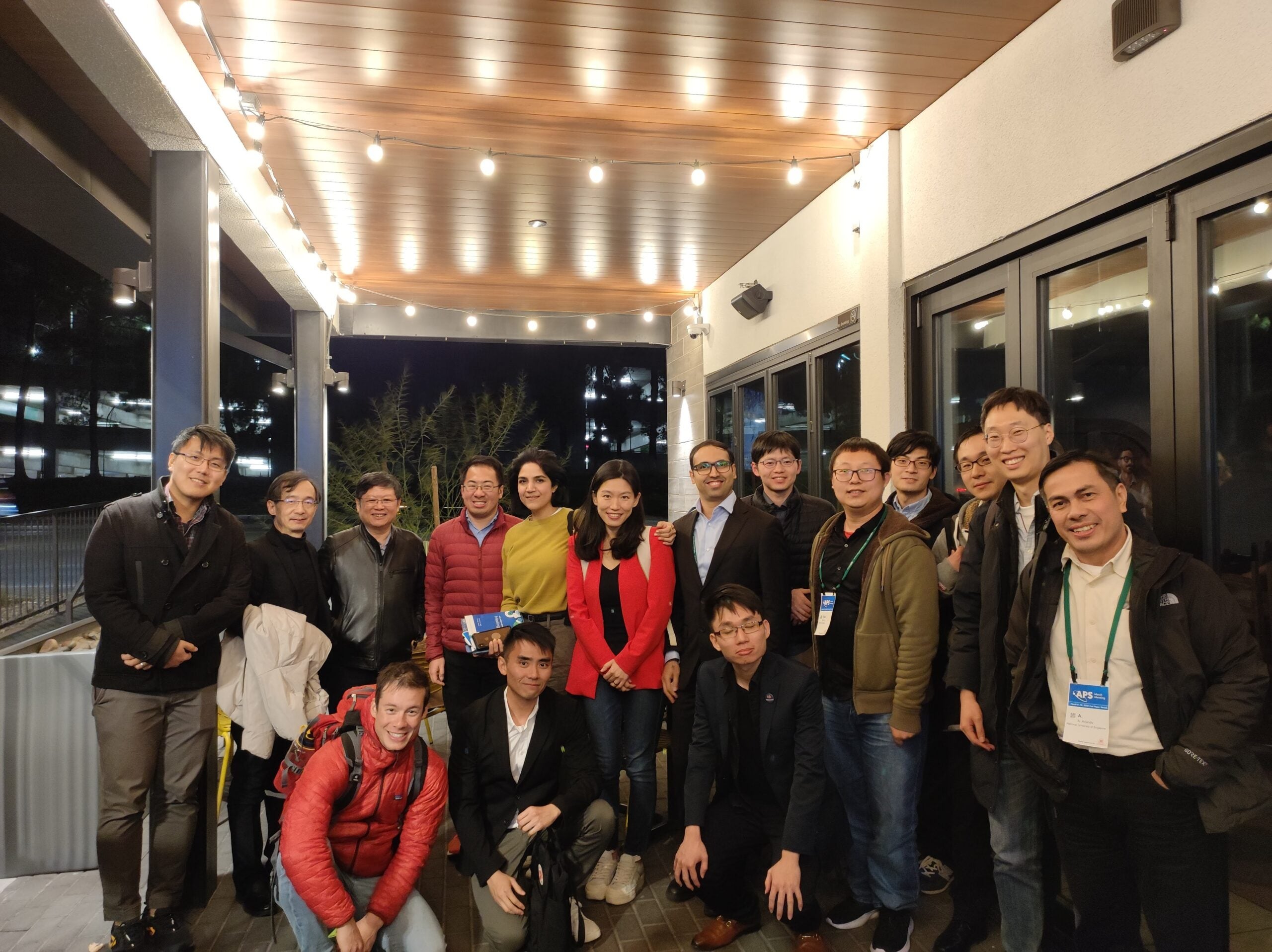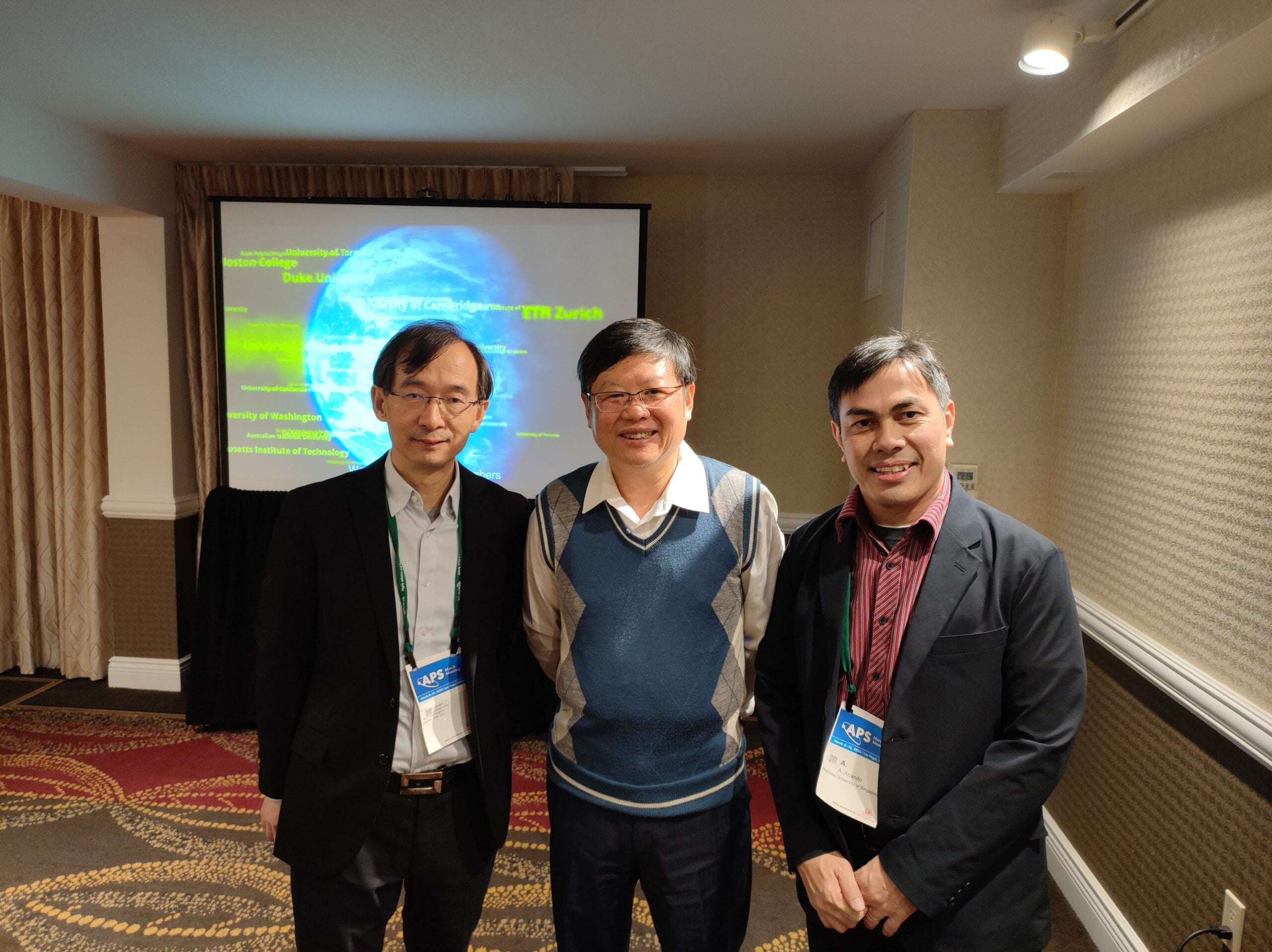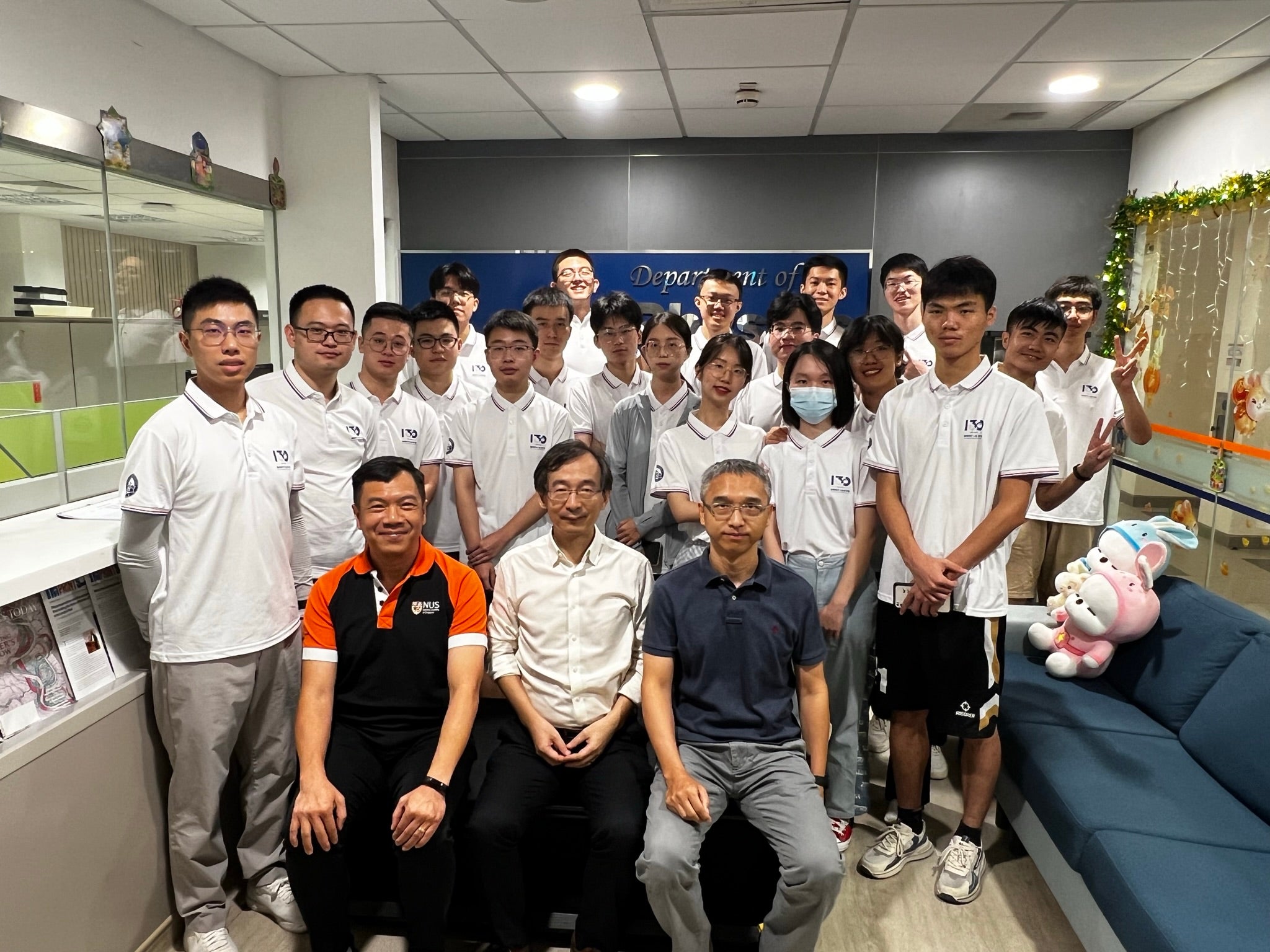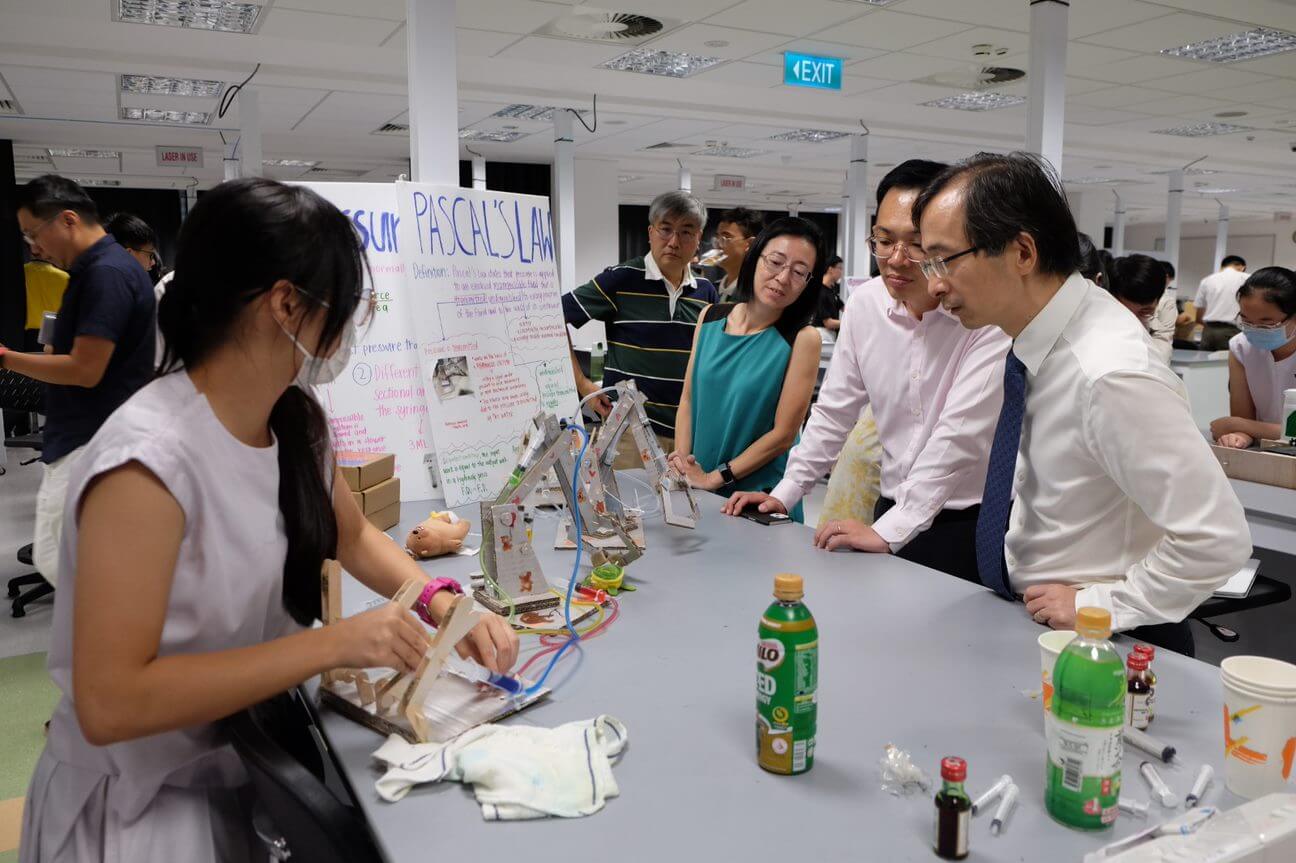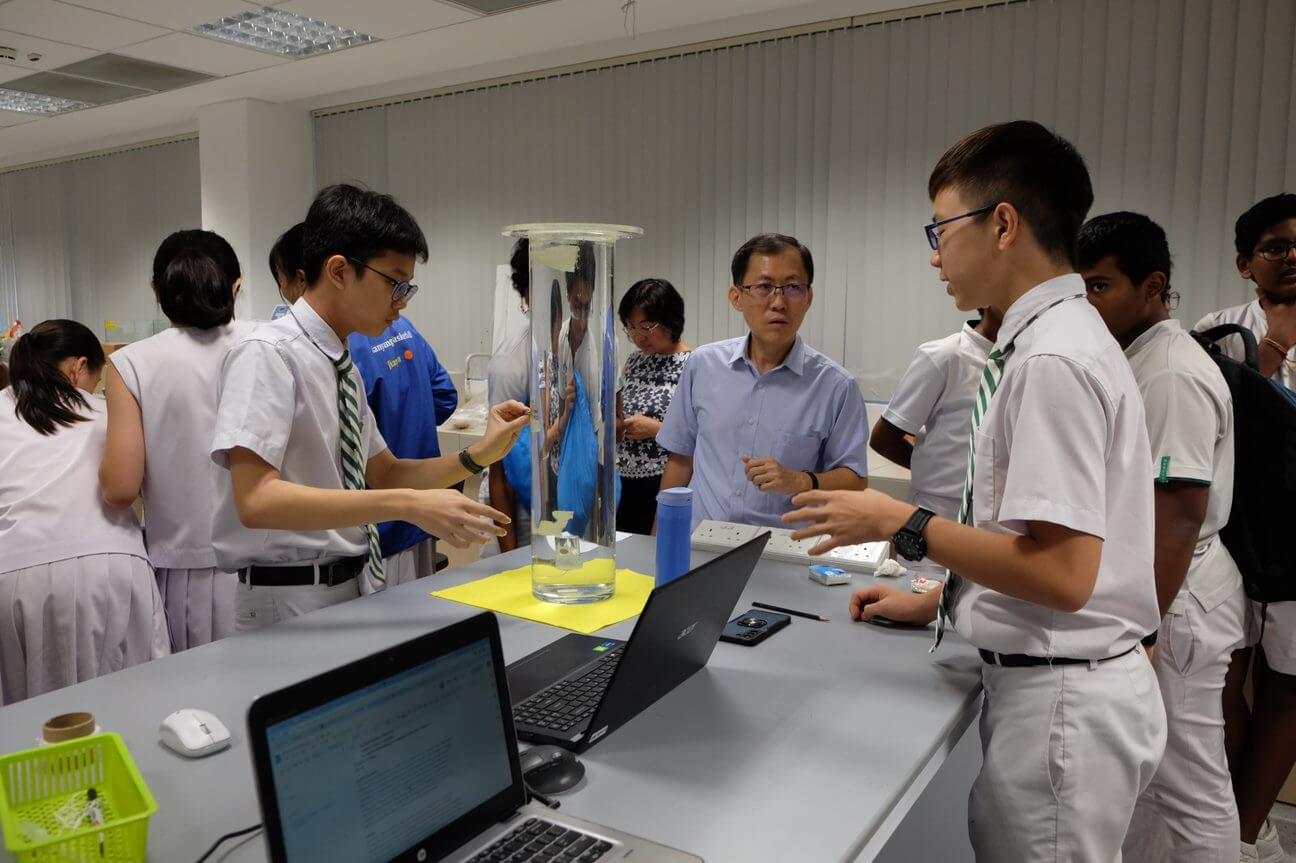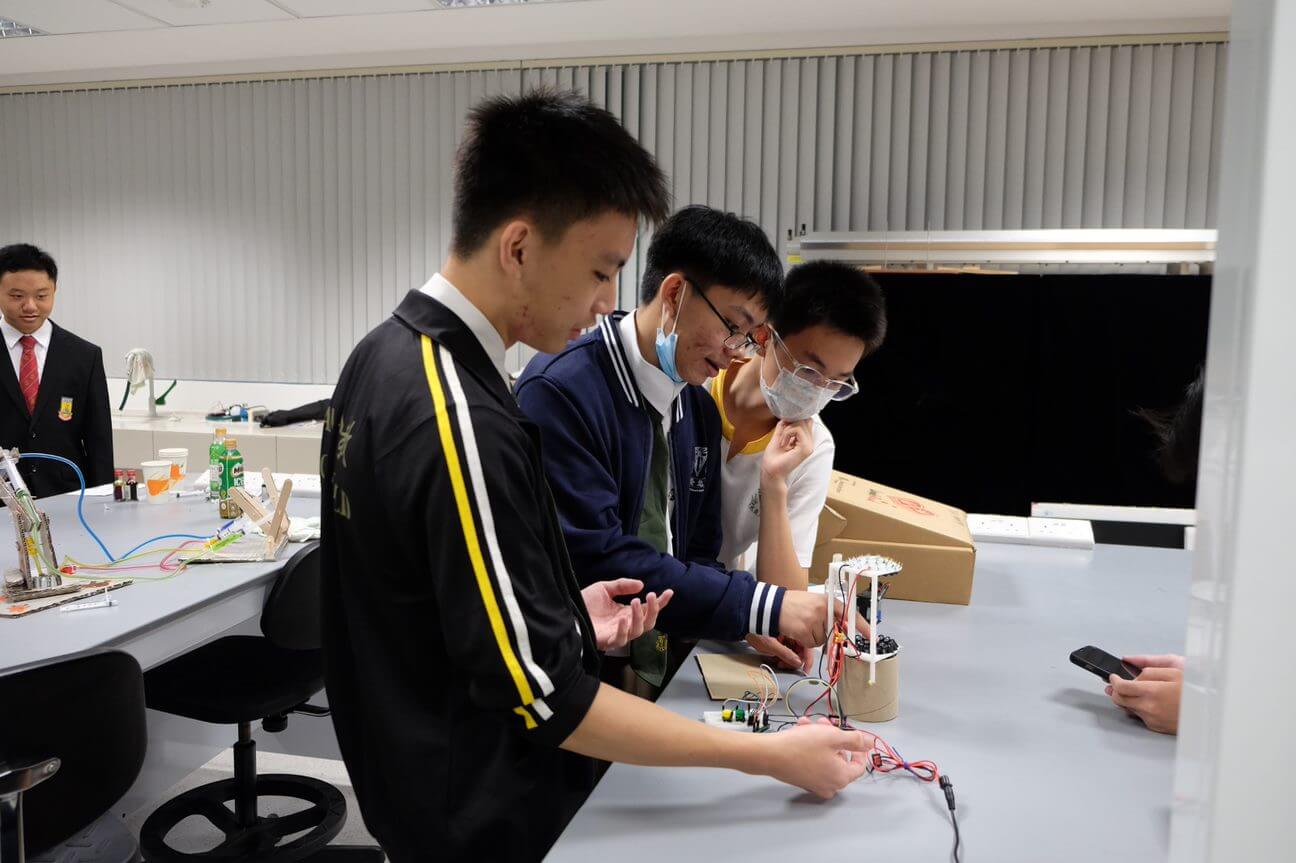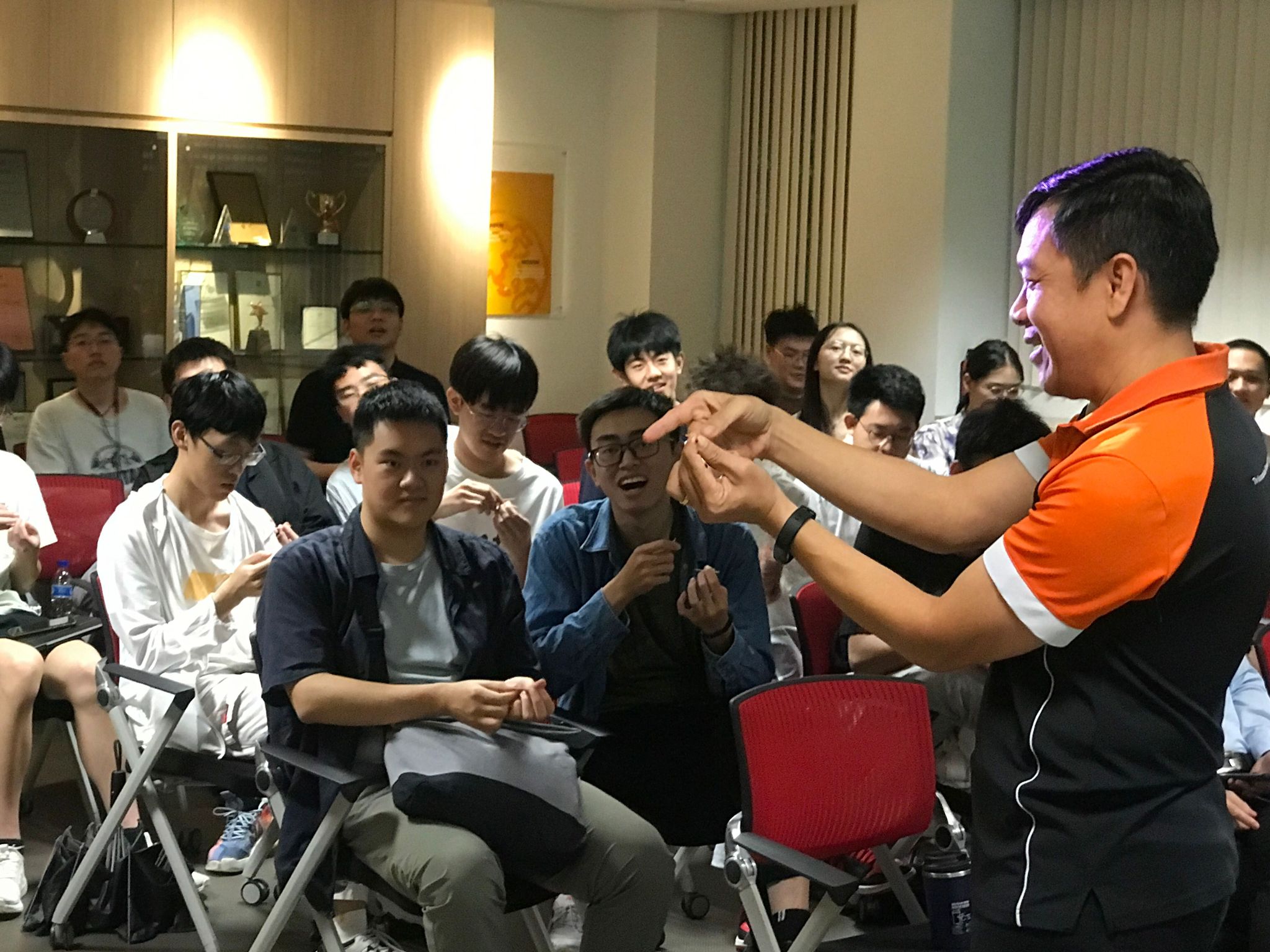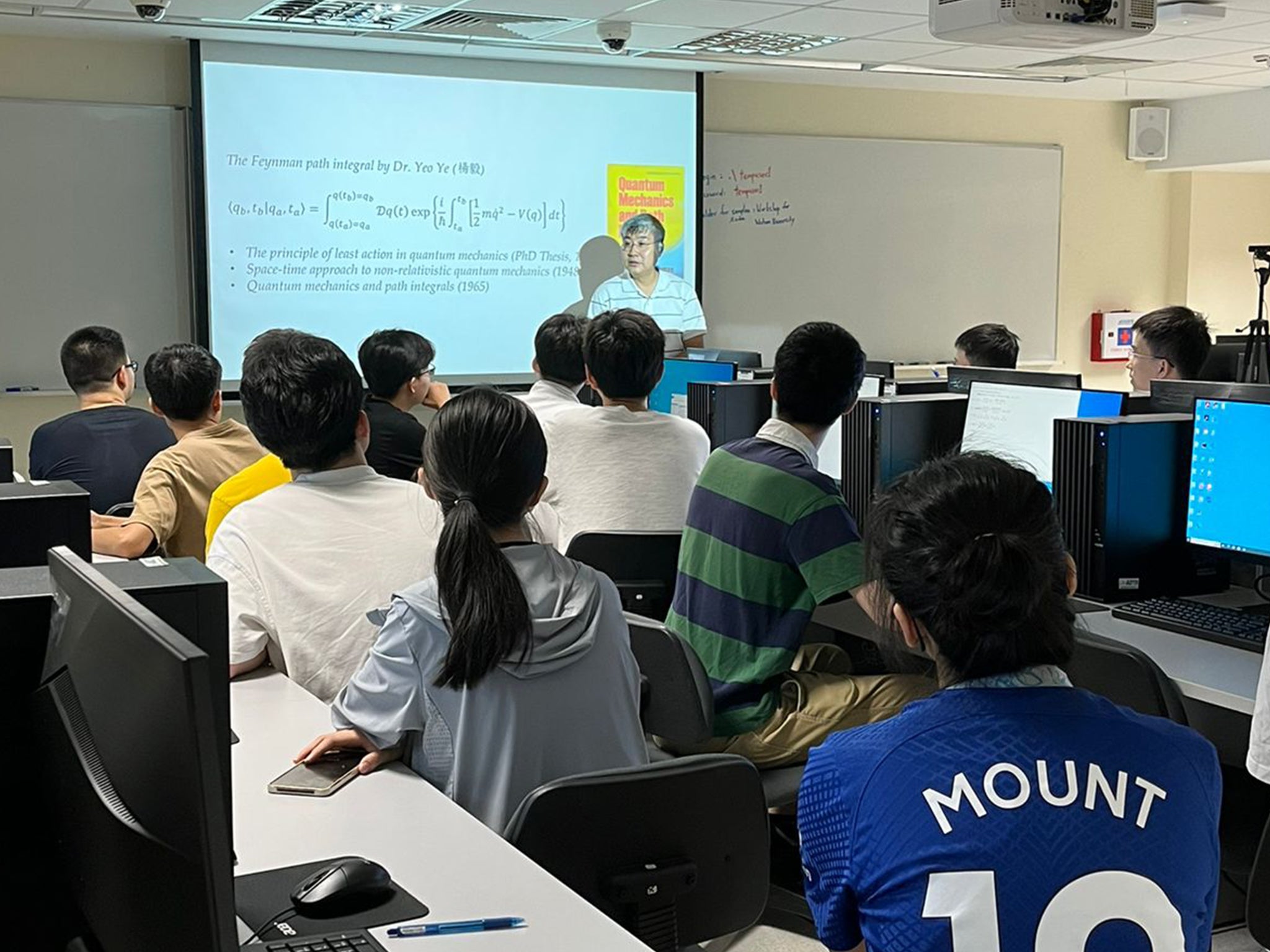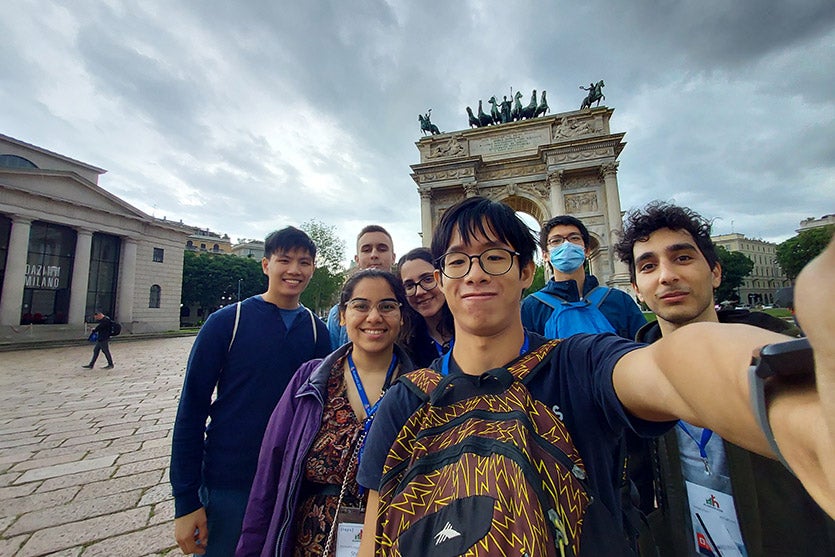
Many tweezers make light work of atom-array assembly
Arrays of neutral atoms are a promising platform for quantum simulation. In their automated setup powered by a novel algorithm, Asst Prof LOH Huanqian’s team created defect-free arrays of up to 225 rubidium atoms, pristinely arranged in arrays about as wide as human hair (glowing dots in the images). These pictures show how the team can assemble atoms into any pattern fitting within a 15 by 15 triangular grid. This work was published in Physical Review Applied (March 2023) and highlighted in the American Physical Society’s Physics Magazine (March 2023).
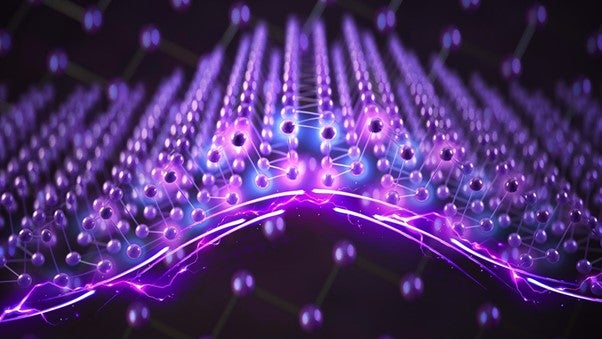
Novel ferroelectric material for the future of data storage solutions
Physicists from NUS and international collaborators led by Prof Andrew WEE recently discovered a new single-element material, known as two-dimensional (2D) black phosphorus-like bismuth (BP-Bi), that demonstrates ferroelectric properties. This new material changes the conventional understanding of ferroelectric materials, which are commonly made up of compounds – more than one element – with opposing charges to allow the formation of an electric field. This finding solves the fundamental question of whether single-element substances have ferroelectric properties. These findings were published in Nature (April 2023).



